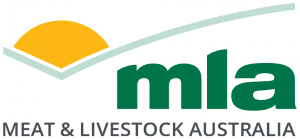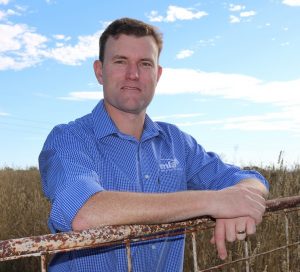 AUSTRALIAN Wool Innovation and Meat & Livestock Australia have agreed on the terms to allow analysis of Merino Lifetime Productivity Project data for inclusion in the national genetic benchmarking service MERINOSELECT.
AUSTRALIAN Wool Innovation and Meat & Livestock Australia have agreed on the terms to allow analysis of Merino Lifetime Productivity Project data for inclusion in the national genetic benchmarking service MERINOSELECT.
Answering a question from former AWI director Paul Cocking at the 2018 AWI annual meeting on November 23, AWI chief executive officer Stuart McCullough said the MLP project contract went to MLA “a few weeks ago”.
“The other contract with AGBU went back two months ago – so the balls have been hit back into their court well and truly and we are waiting to hear from them.”
“We will move as quickly as we can on both of those contracts to get that done and when we get that done, we can analyse the data,” Mr McCullough said.
AWI and the Australian Merino Sire Evaluation Association are collaborating with five sire evaluation sites to deliver the $13 million MLP project from 2015-25, to capture lifetime data from various Merino types across diverse environments.
For about 2.5 years, the two research and development corporations have been negotiating the terms for the inclusion of MLP data into Sheep Genetics and MERINOSELECT.
AWI ceded control of the MERINOSELECT database and of the data analysis software called OVIS when it withdrew from Sheep Genetics in 2016, leaving MLA as the sole Sheep Genetics funder. OVIS is needed to process data to generate genomic analysis for the MLP Project.
The two RDCs are negotiating an agreement that would allow AWI to use OVIS for research and development purposes, with AWI contributing MLP data to Sheep Genetics and MERINOSELECT under a separate agreement.
MLA has a commercialisation license for OVIS, to use it to run Sheep Genetics evaluations and the co-owners of OVIS — MLA, the NSW Department of Primary Industries and the University of New England — have been developing a licensing process for AGBU — a joint NSW DPI-UNE venture – to offer OVIS for research on behalf of other parties, like AWI.

MLA’s Michael Crowley – “agreed the terms with AWI.”
Last week MLA’s general manager – producer consultation & adoption, Michael Crowley, said MLA has been proactive in engaging with AWI in the negotiations and is meeting regularly with AWI to resolve the MLP agreement.
“MLA have provided the agreement to AWI for signing and have agreed the terms with AWI.”

AWI general manager – research, Dr Jane Littlejohn.
AWI’s general manager – research, Dr Jane Littlejohn, said AWI is very pleased with the accelerated progress towards final agreement with MLA on MLP data entry into Sheep Genetics.
“AWI will; however, not rush the remaining negotiation with AGBU and will ensure it achieves consistency between the various contracts it will hold between multiple parties.
“AWI expects that the concurrent negotiations with AGBU will gain momentum now there is increasing certainty around the MLP data use,” she said.

I am not against measurement as such; however, it is the non-measurable traits that, if not addressed, will bring you undone. And that applies not only to the Merino, but to pigs, poultry, dairy and also beef cattle, and prime lambs, in fact, all animals.
Strange how using quantitative genetics works for every trait which it has been used to measure in all animals, but apparently not for the mighty Merino.
Quantitative genetics was the creation of teams of redundant mathematicians following the end of the second world war at Edinburgh Universities, School of Agriculture. After Britain nearly starved during the war, their challenge was to increase animal production. Where selection is only for a limited number of traits, there is no doubt the success of quantitative genetics has been massive in the pig, dairy and poultry industries. But does anyone believe that you can breed successful wool-producing animals using quantitative genetics? And the Merino is not only a much more sophisticated animal, but also less stable genetically, always wanting to revert to its primitive origins. Bart Cumming wouldn’t use quantitative genetics to breed race winners, nor do top Merino stud breeders.